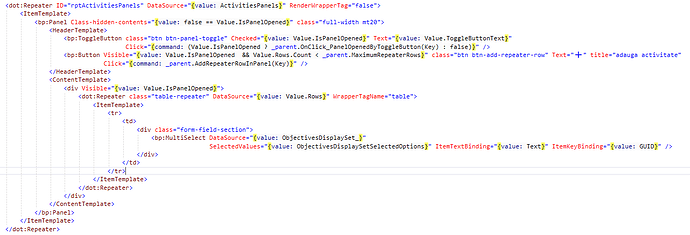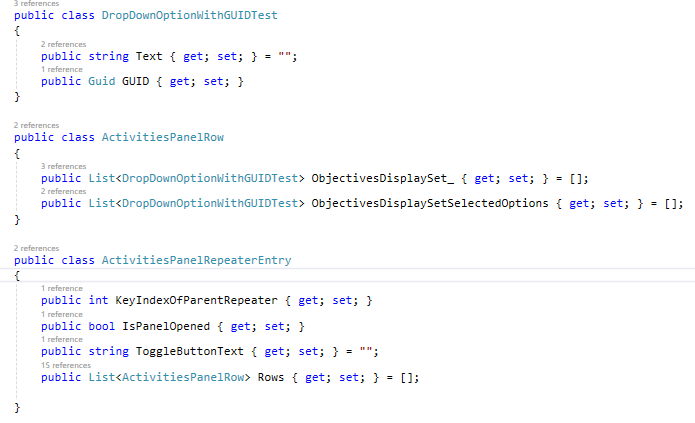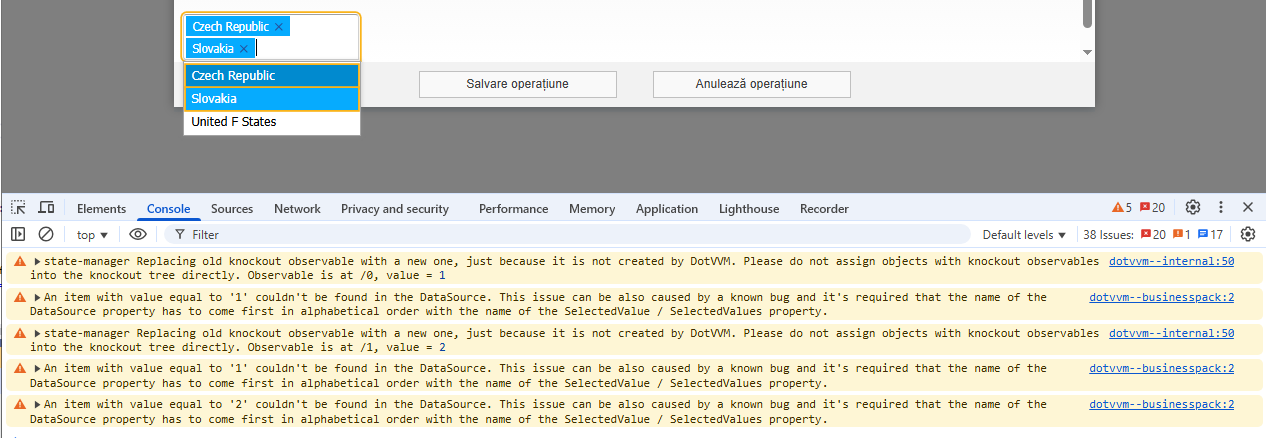Hi hi,
I am dealing with a page that is heavy in data sets and has a repeater of repeaters to build a suite of panels with multiple MultiSelect controls in each panel.
So, what goes wrong?
Crashing very verbosely on every adding or removal of the MultiSelect items. The more selected items it has, the more warnings appear and the control becomes very laggy. Population: circa 900+ items. The warnings still occur (both kinds) if I limit the list to 10 items - instead no lag this time.
LE: errors appear when I use this:
markup:
VM:
public List<ActivitiesPanelRow> Rows is what is bound to the child repeater DataSource.Further, this entry class is part of the dictionary that is bound to the parent repeater DataSource:
BE.TipEntitateRetea is an enum.
The items are correctly selected on the server-side at PostBack.
What I’ve tried:
- switching the order of DataSource & SelectedValues in the markup;
- switching the names of
ObjectivesDisplaySet_&ObjectivesDisplaySetSelectedOptionsbetween them; - both switches;
ItemValueBinding="{value: GUID}"instead of ItemKeyBinding. And adaptingObjectivesDisplaySetSelectedOptionsto beList<Guid>;Dictionary<int, ActivitiesPanelRepeaterEntry> ActivitiesPanelswith int as key instead of asBE.TipEntitateRetea;- not using a Dictionary and binding a VM property directly to the child repeater as data source:


- binding directly to MultiSelect with VM properties:


- … taking the MultiSelect outside of the repeaters
- taunting it with foul words;
- doing the sample





